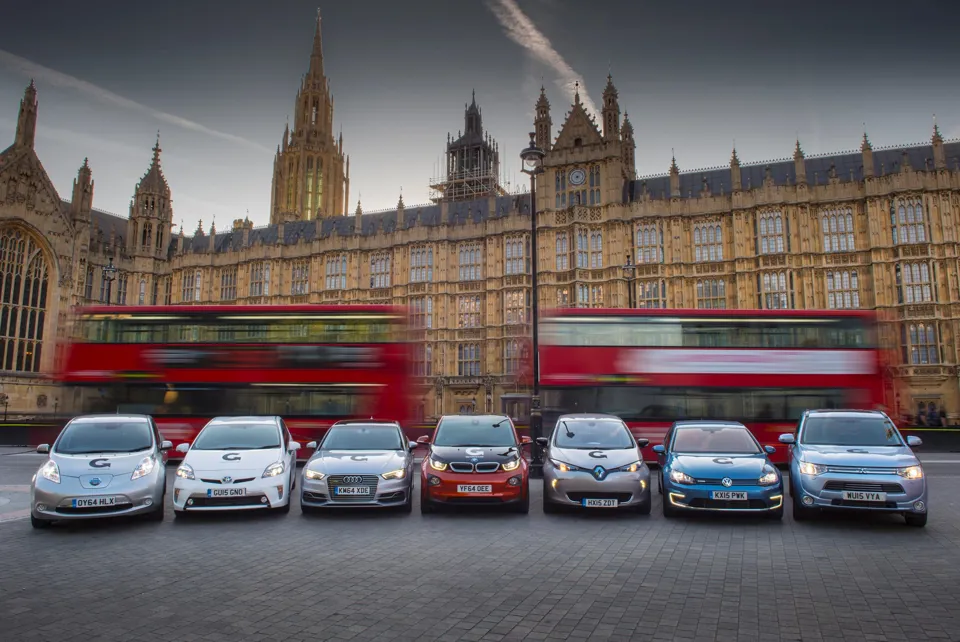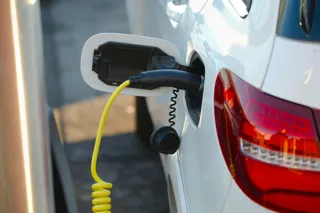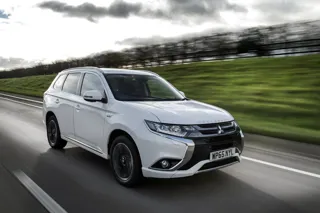The plug-in car grant will be cut by £1,000 and no longer apply to hybrid cars with a range of less than 70 zero emission miles, from November 9.
The Government said the reduction in funding - from £4,500 to £3,500 - for the cleanest cars, and withdrawing the grant completely for the likes of the Mitsubishi Outlander PHEV and the Toyota Prius Plug-in, was a sign of its success.
The 22% cut in grant value for the cleanest cars also reflected the “recent reductions in the price of electric vehicles”, it claimed.
Furthermore, the Department for Transport (DfT) warned that it would be prepared to implement the new rate before November 9, if the news sparked a rush from buyers eager to qualify for the grant at current levels. However, it has only committed to fund the "next 35,000 of the cleanest vehicles", according to the official announcement.
RAC head of roads policy Nicholas Lyes said: “The reduction of the plug-in car grant is a major blow to anyone hoping to go green with their next vehicle choice and makes little sense when we need to focus our efforts on lowering emissions from vehicles.
“Of particular concern, some popular zero emission capable plug-in hybrid models will lose their plug-in car grant altogether.”
In all, just 19 cars will be eligible for the plug-in car grant, with 20 models no longer qualifying under the new rules.
Lyes continued: “With up-front costs still a huge barrier for those hoping to switch to an electric vehicle, this move from the Government is a big step backwards and is in stark contrast to countries like Norway where generous tax incentives have meant that it has one of the highest ownership levels of ultra-low emission vehicles of anywhere in the world.”
John Pryor, ACFO chairman, said: “The Government’s decision to reduce financial support for plug-in vehicles is, quite frankly bonkers. Demand for plug-in vehicles is already extremely limited and the decision to reduce the amount of financial support available through the Plug-in Car Grant is likely to reduce demand still further.
First introduced in 2011, the plug-in car grant (PICG) has provided a discount to the price of more than 160,000 new ultra-low emission vehicles.
Category 1 cars, with CO₂ emissions of less than 50g/km and a zero emission range of at least 70 miles, received 35% off the purchase price, up to a maximum of £4,500.
Meanwhile, category 2 cars, with CO₂ emissions of less than 50g/km and a zero emission range between 10 and 69 miles, as well as category 3 cars, with CO₂ emissions of 50 to 75g/km and a zero emission range of at least 20 miles, benefitted from a grant for 35% of the purchase price, up to a maximum of £2,500.
It has helped the plug-in hybrid market become more established, but the Government says it now wants to focus its support on zero emission models like pure electric and hydrogen fuel cell cars.
However, the cut in funding for ultra-low emission vehicles comes after the Government had already been warned that if it is to stand a chance of achieving its Road to Zero pledge of half of all new cars being ultra-low emission by 2030, it must bring forward planned reductions in company car tax rates and provide guarantees it will stay low.
Up to the end of August, 8,980 pure EVs had been registered, compared with 9,030 in the first eight months of 2017 – a fall of 0.6%. However, when taken together with other ultra-low emission vehicles (ULEVs), Government figures show that 33,792 cars qualified for the plug-in-car grant during the same period, a 32.6% year-on-year increase.
Last year, 53,203 new ULEVs were registered in the UK, up 27% from 41,837 units in 2016. However, they accounted for just 1.7% of all new vehicle registrations – up from 1.2% one year previously and 0.9% two years before.
To achieve the Government’s ambition for at least half of new cars to be ULEVs (sub-50g/km CO2) by 2030, registrations would have to rise 30% year-on-year for the next 12 years.
BVRLA chief executive Gerry Keaney labelled the decision to cut the grant short-sighted and said it would only serve to "stifle the uptake of electric vehicles".
“The removal of the plug-in grant incentive makes our calls to expedite the shift to a 2% tax rate for ULEV company cars even more crucial, as without either measure there is very little motivating motorists to choose a low emission vehicle," continued Keaney. "Only last month the Prime Minister was setting out a variety of excellent plans to stimulate the production of electric vehicles and support the implementation of additional charging infrastructure. All this good work will be for nothing if the demand side of the equation is not equally incentivised.
“We are calling on the Government to rethink this decision as a matter of urgency. The plug-in grant, together with our calls for the leveraging of the company car tax within this month’s Budget, would actively encourage motorists to make less polluting vehicle choices. Not doing so puts the Road to Zero ambitions in real jeopardy.”
Mitsubishi said it was “surprised and disappointed” by the decision. Rob Lindley, managing director at Mitsubishi Motors in the UK, told Fleet News: “The decision to suddenly end grant support for some of the greenest vehicles on the road is extremely disappointing.”
However, as the segment leader for the past four years, Lindley said the company was “confident” that fleets will still see the benefits of running the car compared to conventional petrol-and diesel-powered SUVs.
Liberal Democrat environment spokesperson Tim Farron said: "This short-sighted decision from Government is a dagger to the heart of their claims that they are serious about improving air quality.
"Encouraging people to buy cars that are less polluting makes sense and Liberal Democrats demand better for our environment than more Conservative cuts.”
For the government’s Road to Zero targets to be achievable, Tim Porter, managing director of Lex Autolease, said: "We need to see almost a 23-fold increase in ultra-low emission vehicle uptake, and incentives like the plug-in car grant are key to making this possible.
"While the grant for zero emission vehicles will continue – albeit with smaller contributions available for drivers – the 2030 target relates to both ultra low and zero emission vehicles. This means there is still a role for plug-in hybrids to play which is key, given there are also still relatively few zero emission vehicles on the market."
Matt Walters, head of consultancy and customer data services at LeasePlan, believes the lack of warning has also put the industry on the back foot. However, he believes there are some positives. "The scheme being extended into the next decade is good news as it continues to encourage drivers to go green," he said.
"We are now in the second phase of encouraging people to adopt electric vehicles, and this announcement signals that the Government is taking the road to zero seriously. The initial grants stimulated strong demand with early adopters, and it was right that they were rewarded for their decisions. However, it didn’t necessarily encourage the right behaviours.
"We know that many drivers still use the petrol function on their hybrids – which doesn’t benefit the environment in any way; so actually, the Government’s changes means they’re targeting a behaviour change in motorists, to really accelerate the road to zero. This is ultimately a good move as it should drive a consistent, environmentally beneficial attitudinal shift, even if it now means fewer vehicles will be eligible for grants."
The plug-in van grant remains unchanged.
Read more in the next edition of Fleet News.
























The Engineer - 12/10/2018 08:18
As much as I love my PHEV, this is the final nail as to why I am abandoning them on replacement. The continual company car tax hikes against the high (now higher!) list prices make it less attractive than it used to be. And now my employer is expecting me to provide them with my electricity at home for free to power my business mileage! - not a chance! I might as well have a petrol car, the BIK being far smaller I will end up no worse off. Pity really to be going backwards.